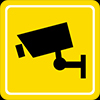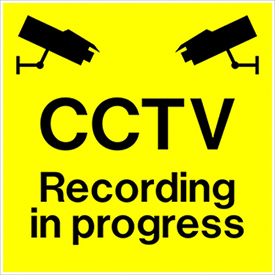
CCTV: Is It Really Spiraling Out of Control?
- By Brian Sims
- Mar 12, 2013
 1987 wasn't a great year, to be frank, what with the Stock Market crash, and the King's Cross London Underground fire. But on a positive note -- The Simpsons made its TV debut.
1987 wasn't a great year, to be frank, what with the Stock Market crash, and the King's Cross London Underground fire. But on a positive note -- The Simpsons made its TV debut.
In terms of what transpired in our security world, 1987 was pretty monumental. Why? We witnessed -- no pun intended -- the very first UK town centre CCTV system installed across King's Lynn, with a view toward protecting its 40-odd thousand citizens.
Proportionate Surveillance
Since then, of course, CCTV's presence in the public domain has burgeoned both in terms of the number of cameras involved and the quality of the technology that lies within them. Positively, specific systems operators are now licensed and regulated by the government. These regulated operators, in unison with top-quality cameras, have given rise to a myriad of success stories of more and more criminals being brought to justice by way of all-seeing "eyes in the sky.”
The key to the ongoing success of CCTV has been, is, and always will be buy-in from the public -- the people being watched.
As citizens, we all need to know that surveillance is both appropriate and proportionate in its deployment.
It must also be the case that camera system operators, and those who use the information duly captured, demonstrate integrity in doing so at all times.
CCTV Code of Practice
The current UK coalition government is committed to the further regulation of CCTV by way of the Protection of Freedoms Act 2012 and is presently seeking views on a draft of ‘Code of Practice,’ focused on surveillance.
That code is built squarely upon 12 guiding principles.
Interestingly, and for the first time, the notion of "surveillance by consent" is brought into play. There's an obvious parallel here, with the ethics behind "policing by consent".
The consultation period that closes on March 21 takes place while Surveillance Commissioner, Andrew Rennison's comment that HD CCTV could breach human rights remains fresh in everyone’s memory.
The commissioner has stated that the proliferation of HD surveillance systems and facial recognition technologies in public spaces could result in a backlash from citizens.
"The technology has overtaken our ability to regulate it," said Rennison. “HD cameras are ‘popping up all over the place,’” asserted the commissioner, “with the exponential growth of high power, megapixel cameras potentially becoming an issue around Article 8 of the Human Rights Act [relating to the protection of family and private life].”
Proliferation of CCTV
Of course, discussions around "the surveillance state" have surfaced time and again. They're not likely to disappear. Indeed, across the years, I've chaired numerous industry debates on this topic -- all of them impassioned affairs.
At one of those debates, I suggested that the proliferation of CCTV cameras in public spaces isn't an issue if, like myself, you happen to be a law-abiding citizen and are behaving appropriately.
Some would assert that such a suggestion is perhaps a touch naive.
In all honesty, I would argue that neither the number of cameras monitoring us nor the inevitable advance of technology is the crux of the matter. Rather, it's what subsequently happens to the images, data, and information -- call it what you will -- gathered as a result of the process that really matters.
“The Protection of Freedoms Act” is to be welcomed as is the draft “Code of Practice” on surveillance.
Certainly, the balancing act that has to be struck for CCTV, between the need to enhance public space safety, and at the same time, safeguard privacies, is far from an easy task, but those two outcomes are not mutually exclusive.
Let's never forget the vital information gathered by CCTV during 7/7 and the London riots of August 2011.
Properly regulated, deployed, and used, CCTV is one of the very best crime-fighting tools at our disposal.
About the Author
Media Solutions Manager, UMB Live Security & Fire Portfolio, Brian Sims, is producing the seminar content for the CCTV & Video Surveillance product area at IFSEC International, sponsored by IDIS.